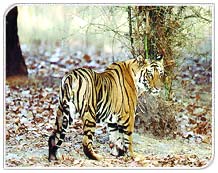Corbett Travel Guide
---------------------------------------------------------------------------------------------------------------------------------------------------------------------------------------------------------------------------------
Corbett Home » About Corbett Travel Guide » Places to See » How to Reach » Air Line Ticketing
Car Coach Rentals In Corbett » Map »Travellers Tools
---------------------------------------------------------------------------------------------------------------------------------------------------------------------------------------------------------------------------------
Corbett Home » About Corbett Travel Guide » Places to See » How to Reach » Air Line Ticketing
Car Coach Rentals In Corbett » Map »Travellers Tools
---------------------------------------------------------------------------------------------------------------------------------------------------------------------------------------------------------------------------------
Places to see
Corbett Wildlife Park
 Nestling
in the foothills of the Himalayas, the Corbett National Park extends over
an area of 520.82sq.km. Varied topography and vegetation gives Corbett a rich
diversity in habitats and natural beauty. Flat valleys are interspersed with
hilly ridges and the Park's rolling grasslands known as the Chaurs provide
visitors with an excellent view of its inhabitants. The magnificent Ramganga
River flows through the entire length of the Park and little forest streams
tumble through the ravines.
Nestling
in the foothills of the Himalayas, the Corbett National Park extends over
an area of 520.82sq.km. Varied topography and vegetation gives Corbett a rich
diversity in habitats and natural beauty. Flat valleys are interspersed with
hilly ridges and the Park's rolling grasslands known as the Chaurs provide
visitors with an excellent view of its inhabitants. The magnificent Ramganga
River flows through the entire length of the Park and little forest streams
tumble through the ravines. While dense stands of sal cloak the higher ridges, mixed deciduous forests are found throughout the Park and over 110 varieties of trees, 51 species of shrubs and over 33 kinds of bamboos and grasses are seen here.
Corbett has the highest density of tiger in the Country - approximately one every 5 sq.km. and it was here that the prestigious "Project Tiger" was launched in 1973. Four of deer - hog deer, samber, chital and barking deer and other prey like the wild boar, support the predator.
Besides the tiger, Corbett is a haven for 50 mammals, 580 kinds of birds and 25 reptile species. The Park has elephants, the Himalayan black , bear in the higher elevations, sloth bear, varieties of lesser cats, dhole -the wild dog and an entire spectrum of colourful birds including water birds, pheasants, jungle fowl and the Indian hornbill.
Basking along the banks of the Ramganga are the slender snouted gharial and the mugger or marsh crocodile. The river is rich in the magnificent mahaseer - a fine sporting fish prized by anglers, though angling is not permitted inside the National Park. Excellent facilities for staying and viewing wildlife make Corbett one of the finest reserves in India.
Corbett Home » About Corbett Travel Guide » Places to See » How to Reach » Air Line Ticketing
Car Coach Rentals In Corbett » Map »Travellers Tools